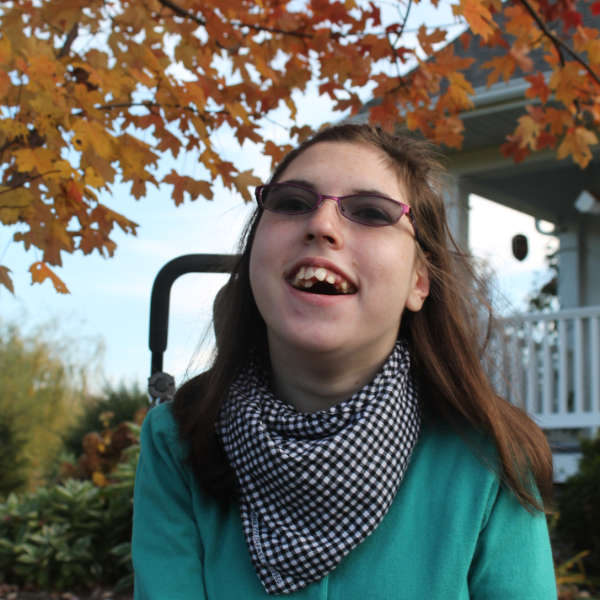Rebekah’s Story

Sometimes the answers don’t come quickly. Sometimes we struggle, but we don’t give up.
Three-year old Rebekah was Dr. Wang’s first patient at our clinic. She had low muscle tone and feeding difficulties from the time she was born. She also experienced seizures. At the time we met her, Rebekah had already been seen by a number of pediatric neurologists and geneticists. But for years, no one, including our own clinic, could give her a diagnosis.
Taking care of children with special needs is challenging, particularly when we don’t have a diagnosis. Many times we’re not sure what treatments are most effective because we don’t know the cause of a patient’s disease.
One day Rebekah’s mother called us. Rebekah had stopped breathing and was turning blue. We were able to resuscitate her. Yet we still didn’t know what was causing her condition.
Discouraged but not defeated, we promised Rebekah’s family that we would not stop until we found an answer. More than a decade passed with no diagnosis.
Then several years ago, we uncovered an important clue to Rebekah’s condition. We found that MM9, an enzyme in her blood, was extremely high. We partnered with a research group to try to understand what this high level of MM9 meant. The turning point came when we determined that the high level of MM9 was not the cause of Rebekah’s condition, but rather the consequence of it.
We were getting closer to finding an answer. We performed next generation sequencing (NGS) on 4,800 of Rebekah’s genes, but found no significant abnormalities. We then selected a few dozen genes to closely examine one by one. That’s when we made a diagnosis – pyruvate dehydrogenase deficiency.
We reached out to Rebekah’s family with the news they had been waiting for. We finally had a diagnosis and we could start treatment, which consisted of a high-fat or ketogenic diet with vitamin B1 supplements. Rebekah responded well to the treatment and made dramatic progress. She became much more alert and comfortable, and her seizures decreased.
Many times, the answers we find for children like Rebekah can help other children. Not long after we identified Rebekah’s condition, we diagnosed another child in our community with pyruvate dehydrogenase deficiency.
Rebekah’s long journey was also our clinic’s journey, one of perseverance, faith and hope. It’s a reflection of our daily work and our commitment to improving the lives of special needs children with genetic and metabolic disorders.
« To patient stories
